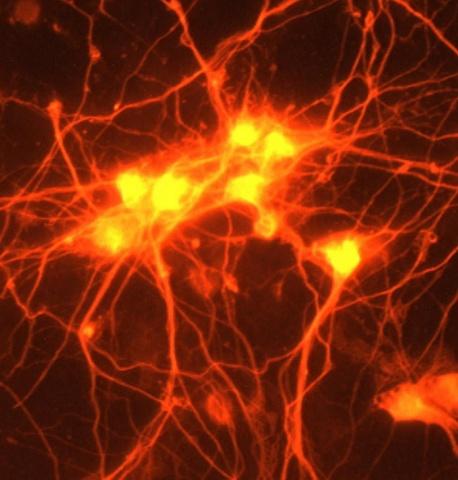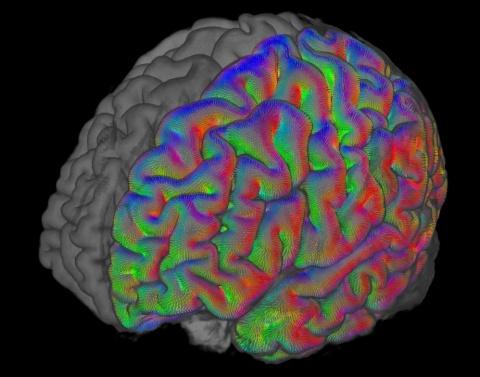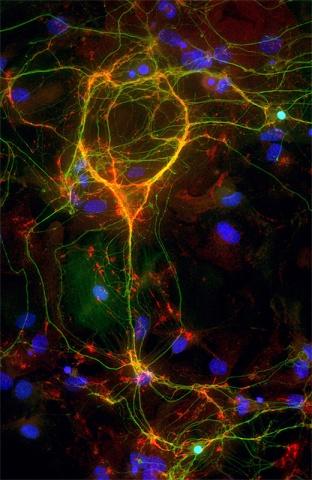Duke and UC scientists find a potential remedy for chronic pain from a 'junkyard of cancer drugs'
Several disorders cause chronic pain, including nerve injuries and bone cancer, but existing remedies can trigger uncomfortable side effects, or worse, addiction. So researchers from Duke University, including the Neurology Department's Yong Chen, PhD, and Wolfgang Liedtke, MD, PhD, and the University of California at Irvine teamed up to tackle this problem by searching for compounds that tackle pain in a new way—by targeting genetic switches that cause it.
Duke Neurology Research Round Up, November 2021
This October, members of the Duke Neurology Department contributed to 12 new peer-reviewed journal articles, advancing our understanding of Alzheimer’s disease, stroke, chronic pain, and other conditions. These articles include discussions of the best framework for neuroscience curricula for medical students, the discovery of an existing experimental drug which offers a new avenue for treating pain without potential addiction issues, and an examination of the viability of ketogenic diets as an alternative treatment for amyotrophic lateral sclerosis (ALS).
Duke Neurology Research Round Up, June 2021
Members of the Duke Neurology Department did their part for Stroke Awareness Month, contributing to eight new peer-reviewed studies published this May. But our other divisions didn’t hold back either, with thirteen other articles advancing our understanding of neuro-oncology, multiple sclerosis, headache, and other subjects.
Read about each of the studies published from members of the Duke Neurology Department below, and find links to the original journal articles as well.
Stroke
Duke Neurology Research Round Up, May 2021
Members of the Duke Neurology Department advanced the fields of clinical, translational, and basic neuroscience this April with 14 new peer-reviewed studies. Nicole Calakos, MD, PhD, was the senior author of a new study in Science that expands our understanding of the integrated stress response in the brain and how it influences learning and memory.
Neurology and Women's Health 2021: Migraine
Gender has profound, complex effects across all fields of health, and neurology is no exception. Biological differences such as sex hormones across the life cycle affect the symptoms and onset of Alzheimer’s, multiple sclerosis, and other conditions. Cultural mores mean that women do most of the caregiving for loved ones with Alzheimer’s disease, even as they are at greater risk than men for developing the condition. Even history plays a part, as for generations women have been left out of clinical trials.
Faculty Spotlight: Jaskiran Vidwan, DO
Jaskiran "Kiran" Vidwan, DO, first became interested in both neurology and head and facial pain as a medical student, when a rotation with a headache specialist showed her the complexity of both headache conditions and the therapies used to treat them. Now, as our newest faculty member in our growing Headache and Pain Division she’s working with patients of her own to make sure they understand the nature of their conditions and receive the best possible care.
APP Spotlight: Ashley Underwood, PA-C, MMS
When Ashley Underwood, PA-C, MMS, joined our providers at our Morreene Road Clinic this summer, it was both a return to a previous role in headache management and an evolution of her work treating patients at Duke Pain Medicine. In this week’s “Spotlight” interview, Underwood talks to us about how her work and her patients’ needs in each of these settings compare.
Duke Neurology Research Round Up, June 2020
In May 2020, members of the Duke Neurology Department contributed to nine new peer-reviewed journal articles. At the clinical level, a new study protocol will test the safety of a promising drug for reducing the consequences neural inflammation, while another shares more than a decade of knowledge about improving patient engagement in ALS research. Other studies, meanwhile, answered questions about how our brains and minds function, such as a NeuroImage study that found older and younger adults used different regions of the brain when performing the same task.
Novel peripherally acting opioid eases pain in mice without related side effects
A peripherally acting opioid with multifunctional agonistic properties has shown to provide peripheral pain relief in morphine-tolerant mice with minimal side effects associated with classic opioids. The drug could serve as a potential candidate for treating pain disorders in humans, according to a study in the August 2019 issue of the British Journal of Pharmacology.







